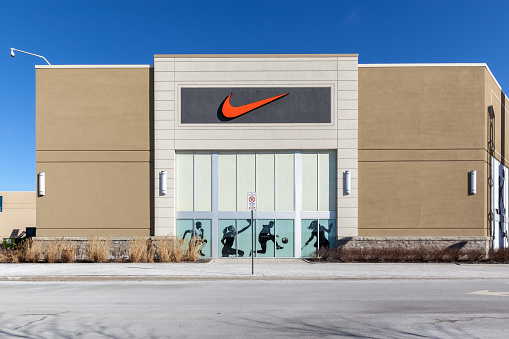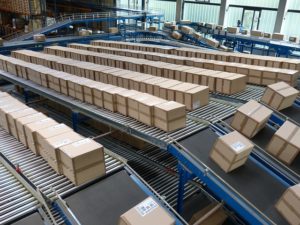Lean is a philosophy and methodology that originated from Japan back in the 80s. The main goal of Lean is to reduce waste in the company, thereby improving the value that the company provides and the profit that is earned.
Many of our articles have already delved into the Lean topic. In this article, we’ll talk about Lean Logistics and how it can benefit your business.
People think that terms like, “Lean”, “Lean Manufacturing”, and “Lean Logistics” all mean the same thing. While they pull from the same philosophy from Japan years ago, there are some differences to them.
When people just say Lean, it refers to a general plan of attack that can be applied to any process or any business with the goal of eliminating waste.
When the term “Logistics” is added, it adds a whole new complexity to how the Lean methodology is used. It then focuses the Lean principles to a different more complex set of operations. These include various processes, from shipping to warehousing and many more.
If this sounds good but you aren’t yet familiar with these concepts, we invite you to learn about the Lean Logistics Principles first. Afterwards, you can return here to learn about the benefits of lean logistics in a business, how to implement lean logistics, and a look at some companies that have successfully implemented lean logistics in their operations.
Benefits of Lean Logistics in a Business
There is a reason why many companies are implementing lean logistics. When implemented correctly, various benefits emerge that help elevate and improve a business. The primary benefits mostly depend on which process lean logistics is used on.
Inventory
Lean logistics lends itself well to inventory management. There are many companies that tend to stockpile raw materials and products. Like a bear hibernating, these companies continue creating and stockpiling numerous products in preparation for customers.
While the idea is good, the reality may not always align. There are many cases where the business just doesn’t attract enough customers to reflect what has been stockpiled.

The result then is a lot of value lost due to the numerous man hours squandered, as well as the massive risk of having the inventory becoming obsolete as time goes by.
This isn’t to say that the best thing to do is to have little to no inventory at all. This too can backfire as it may leave customers waiting for a long time.
Lean logistics allows businesses to have their inventory stocks in the Goldilocks zone. In other words, it keeps the inventory just right. This reduces the holding cost of inventory, while ensuring that products are created only when needed.
Warehouse
The benefit to the warehouse is directly affected by how lean logistics is implemented to the inventory.
If the product is steadily being churned out to customers, and there aren’t that many items in the inventory being kept, this also means that there isn’t much need for vast warehouse spaces.
Production Processes
As stated previously, Lean is a way of eliminating waste from a company or business. Waste is defined as something that does not add value to the business and more importantly, for the customers.
Thus, when production processes become lean, it takes out all unwanted steps and only leaves the vital ones. This means that production processes are shorter but more effective. Efficiency and profits are only a few things that are improved by this.
These are only a few benefits of lean logistics. All in all, the three benefits above can reduce the amount of operational costs, while also increasing profits. It is ultimately a blueprint to success.
Implementing Lean Logistics
In order to implement lean logistics, one starts by getting a general overview of the company’s process. You’ll want to identify the various important processes within the lifecycle.
Afterwards, you need to bring together the key people within each of the important processes. The one thing you have to realize is that implementing lean logistics is a company-wide effort. Everyone needs to be on the same page. This includes the employees as well as those in upper management.
Bring all those people together and explain what you want to happen. This not only aligns people to a singular goal, it also improves the communication between all of these people. A report from Tim Horton states that this can improve communication by up to 15%.
The next step is to look at the whole process and work together in identifying and eliminating waste from these processes. Then, enact these proposals.
This is basically the blueprint for implementing lean logistics. However, what you need to realize is that lean logistics is a continuous process. After you have made your adjustments, you need to observe them and see how it needs to be improved again. It is a never ending cycle of improvement.
Companies Using Lean Logistics
There are various companies around the world that are using lean logistics. One of the biggest shoe manufacturing companies, Nike, has taken on the lean logistics philosophy. They initially used for its intended purpose, which was to decrease waste and increase value.

However, the lean logistics principles had an unintended benefit. It also improved the labor practices of plants in other countries by as much as 15%. This is because lean logistics put more value on the employees.
Another company is Intel. One of the largest computer manufacturing companies in the world really took the lean logistics approach to heart.
Prior to lean logistics, they stated that it took them nearly 5 months to start developing a new chip at a factory. After lean logistics, it now takes a little less than 2 weeks.
Finally comes John Deere, one of the biggest agricultural machinery manufacturers in the world, went all in with lean logistics. Early in the millennium, they spent USD $100 million to transform their company to a lean one.
Learn Lean Logistics Now
The best ideas are timeless. That is why the idea of Lean, which originated 40 years ago, stays prominent and effective no matter what company and industry. We have no doubt that lean will continue to evolve and stay in the limelight for many companies and for years to come.
Learn what you can about lean logistics now, and gear your business towards success.
You might also wanna check Important Single-Minute Exchange of Dies (SMED) Techniques Used in Manufacturing.



